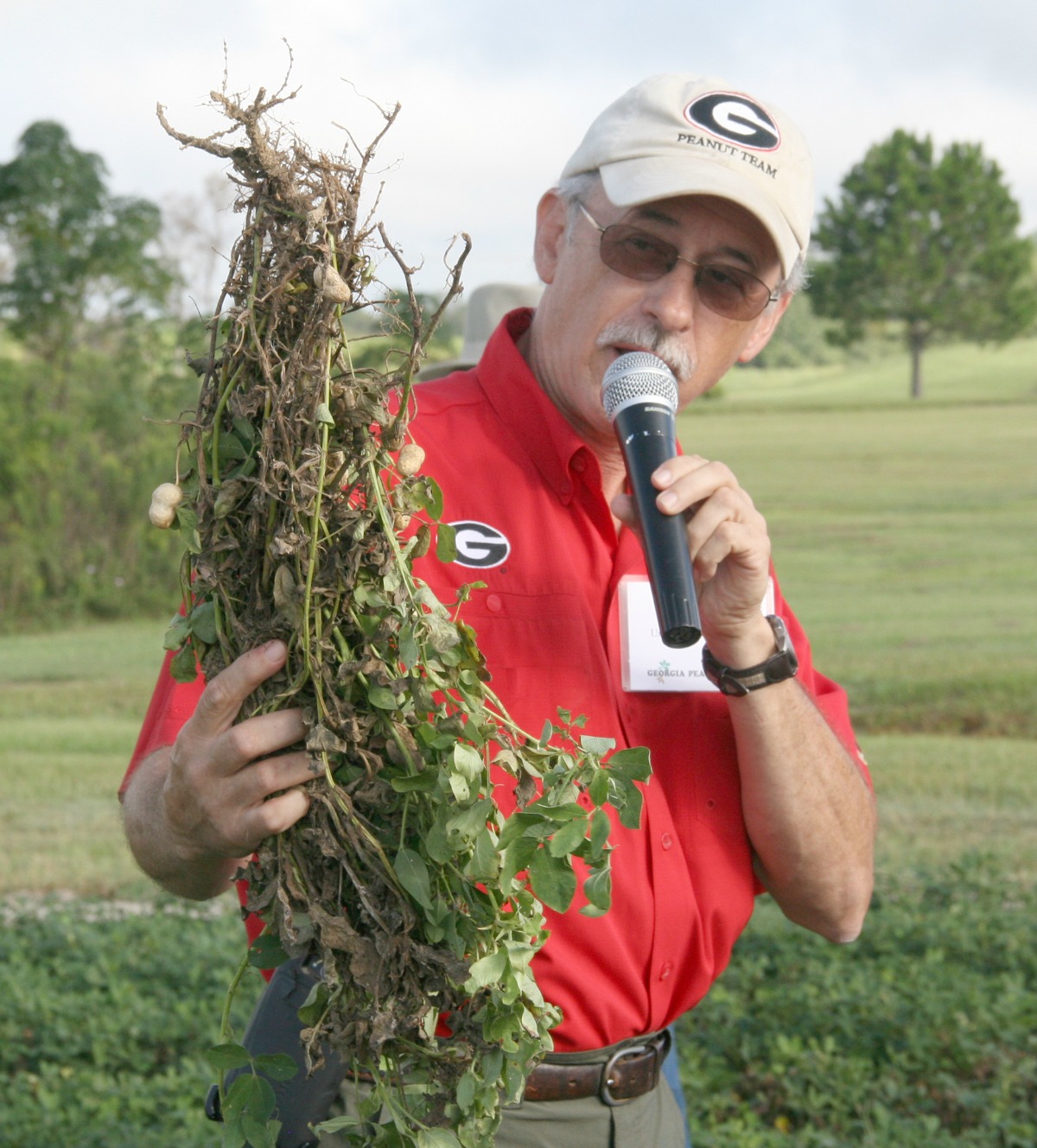Tim Brenneman

2016 D.W. Brooks Award for Excellence in Research
Department: Plant Pathology
Georgia farmers grow more than $500 million in peanuts each year, and they depend on the research of plant pathologists like Tim Brenneman to help keep their crops healthy.
Since joining the University of Georgia in 1986, he has had a research program focusing on developing improved, cost-effective disease management programs for peanuts and pecans.
Brenneman is known for taking an integrated approach to problem-solving. He works with plant breeders, entomologists and agronomists to craft holistic programs that protect peanut and pecan crops from disease while minimizing the amount of fungicide and other inputs needed. His research has helped to improve 30 years of peanut and pecan harvests in Georgia, and his disease control programs have been adopted around the globe.
Not only has Brenneman pioneered ways of making existing fungicides work more efficiently, he has also helped develop protocols for new classes of fungicides, allowing farmers to use a broader range of products.
“He has been the leading research contributor in understanding the complex task of how to use [new fungicides] most sustainably in effective integrated programs—how to integrate material efficacy, timing and application method with resistance management,” said Jay Chapin, professor emeritus at Clemson University. “His annual presentations at the primary international peanut research meetings (American Peanut Research and Education Society) are anticipated by anyone interested in disease management.”
He has worked with the U.S. Feed the Future Peanut Mycotoxin and Innovation Lab to improve the productivity of peanut crops in Haiti and Africa and to reduce the risks posed by aflatoxin, a carcinogen produced by a fungus that infects peanut and corn crops.
He also helped to discover edible pecan truffles in Georgia’s pecan groves.
